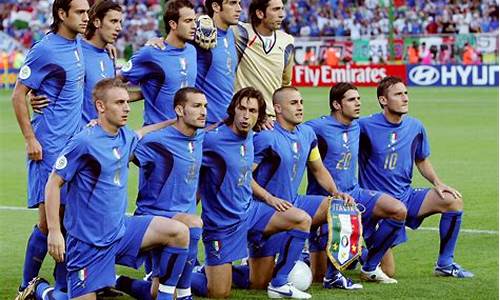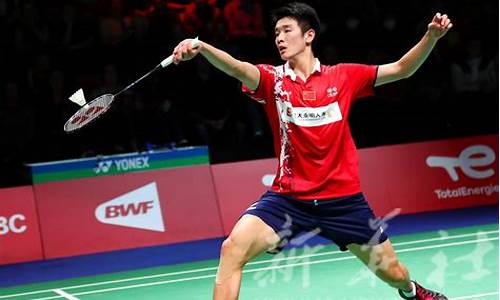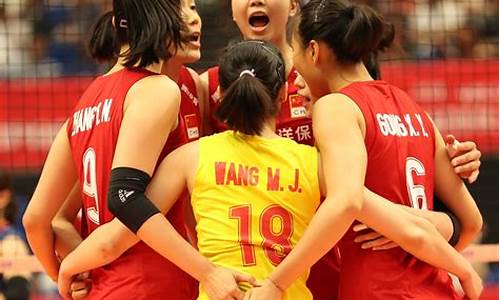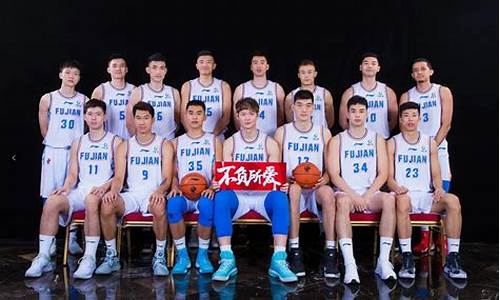体育英语教材电子版_体育英语基础教程课文翻译
1.体育类英语单词有哪些?
2.上体育课用英语怎么说?
3.有关于体育的英语文章
4.体育用具(英语)
5.英语体育课的作文怎么写?

sport
英?[spt];美?[sprt]? ?
n.?运动;体育;vi.?嬉戏;炫耀;戏弄;adj.?运动的;户外穿戴的
1、sport的基本意思是“运动”,引申可作“,消遣,游戏”解,既可用作可数名词,也可用作不可数名词,英式英语多用sport,美式英语多用sports,表示“某项运动”时,其前可加不定冠词a。
2、sport作“运动会”解时,常用复数形式。
固定搭配:
1、engage in a sport:从事体育运动
2、give sb good sport:使某人获得大的运动量
扩展资料:
近义词:
game
英?[ɡe?m];美?[ɡe?m]? ?
n.?游戏;运动会;比赛;一场比赛;比赛得分;猎物;花招;v.?;adj.?勇敢的;乐意的;跛的
1、game用作名词的意思是“游戏,运动,比赛”,也可表示比赛中的“一局、一盘或一场,比分,比赛规则”。引申可表示“策略,诡计”,是可数名词。
2、game也可指游戏或运动的“器材”,是可数名词。
固定搭配:
1、watch a game:观看比赛
2、win a game:赢得比赛,比赛获胜
体育类英语单词有哪些?
北师大版七年级上英语单词表
1、 认识遇见 meet 150、 时刻 time? 2、 第一 first 151、 游泳 swim 3、 英语 english152、 来 com 4、 一节课 lesson153、 今天 tomorrow 5、 班级 class154、 计划 plan 6、 学生 student155、 操场 playground 7、 女士,** miss156、 停留 stay 8、 十二 twelve157、 游戏 game 9、 ...岁 years old158、 谈论 talk 10、 十三 thirteen159、 关于 about 11、 也 too160、 …怎么样? what about...? 12、 从…来 from161、 时间 time 13、 关闭 close162、 …点钟 o'clock 14、 打开 open163、 一半 half 15、 相称/匹配 match164、 超过… over 16、 写 write165、 美术,艺术 art 17、 练习 exercise166、 化学 chemistry 18、 城市 city167、 历史 history 19、 英国 britain168、 数学 maths 20、 英国的 british169、 在(某时刻) at 21、 十四 fourteen170、 开始 start 22、 十一 eleven171、 起床 get up 23、 黑板 blackboard172、 吃 eat 24、 二十九 twenty-nine173、 早饭 breakfast 25、 五十 fifty174、 房子,住宅 house 26、 父/母 parent175、 课间休息 break 27、 能够 can/could176、 午饭 lunch 28、 篮球 basketball177、 或者 or 29、 钢琴 piano178、 回家 go home 30、 网球 tennis179、 晚饭,正餐 dinner 31、 乒乓球 table tennis180、 结束,完成 finish 32、 骑,开车 ride181、 公园 park 33、 马 horse182、 家务劳动 housework 34、 欢迎 welcome183、 不同的 different 35、 国际的 international184、 习惯 habit 36、 工厂 factory185、 总是,一直 always 37、 饭店/宾馆 hotel186、 卡片 card 38、 大学 university187、 礼物 gift 39、 医院 hospital188、 通常 usually 40、 办公室 office189、 经常… often 41、 医生 doctor190、 从不 never 42、 工人 worker191、 得到 receive 43、 经理 manager192、 发送 send 44、 在…地点 at?193、 好表同意 ok 45、 照片 photo194、 票 ticket 46、 家庭 family195、 双,对 pair 47、 她的 her196、 一双,一对 a pair of 48、 用由于引导句子 that197、 软运动鞋 sneakers 49、 四十六 forty-six198、 (复)牛仔裤 jeans 50、 字典/词典 dictionary199、 t恤 t-shirt 51、 图书馆 library200、 音乐会 concert 52、 picture201、 盒子 box 53、 正确的 correct202、 丝绸 silk 54、 十五 fifteen203、 衬衫 shirt 55、 十六 sixteen204、 杂志 magazine 56、 十七 seventeen205、 小说 novel 57、 十八 eighteen206、 光盘 disk 58、 十九 nineteen207、 选择 choose 59、 三十 thirty208、 大量,许多 much 60、 六十 sixty209、 大量,许多 lot 61、 七十 seventy210、 大量,许多 a lot of 62、 八十 eighty211、 衣服(总称) clothes 63、 九十 ninty212、 音乐 music 64、 饭厅 restaurant213、 歌手 singer 65、 体育馆 gym214、 以…方式 by 66、 科学 science215、 通过电视 on tv 67、 实验室 lab 216、 它的 its 68、 在...前面 in front of217、 想,认为 think 69、 在…旁边 beside218、 想出 think of 70、 在…后面 at the back of 219、 旅行 trip 71、 一些 some220、 动物园 zoo 72、 任何一个 any221、 老虎 tiger 73、 一个物/人 anyone222、 骆驼 camel 74、 建筑物 building223、 大象 elephant 75、 许多 many224、 狮子 lion 76、 人们 people225、 长颈鹿 giraffe 77、 阿姨 aunt226、 袋鼠 kangaroo 78、 祖父 grandpa227、 猴子 monkey 79、 祖母 grandma228、 熊猫 panda 80、 外祖父 grandpa229、 蛇 snake 81、 叔叔 uncle230、 狼 wolf 82、 姐 sister231、 北极熊 polar bear 83、 有 have232、 导游 guide 84、 拥有 have got233、 千 thousand 85、 爷爷 grandfather234、 参观,访问 visit 86、 奶奶 grandmother235、 每一个/只 every 87、 电子邮件 e-mail236、 动物 animal 88、 他(宾) him237、 斑马 zebra 89、 做,制造 do238、 更多 more 90、 健康的 healthy239、 澳大利亚 australia 91、 橘子 orange240、 澳大利亚的 australian 92、 饮料 drink241、 北极 arctic 93、 水果 fruit242、 欧洲 europe 94、 蔬菜 vegetable243、 欧洲的 european 95、 牛肉 beef244、 亚洲 asia 96、 胡萝卜 carrot245、 亚洲的 asian 97、 鸡肉 chicken246、 这里 here 98、 果汁 juice247、 竹子 bamboo 99、 甜瓜 melon248、 非洲 africa 100、 牛奶 milk249、 非洲的 african 101、 洋葱 onion250、 美洲,美国 america 102、 猪肉 pork251、 美洲/国的 american 103、 土豆 potato252、 大洋洲 oceania 104、 西红柿 tomato253、 大洋洲的 oceanian 105、 最喜欢的 favourite254、 沙漠 desert 106、 面条 noodle255、 森林 forest 107、 糖果 sweet256、 丛林 jungle 108、 可乐 coke257、 草 grass 109、 汉堡包 hamburger258、 草原 grassland 110、 冰激凌 ice cream259、 印度 india 111、 不健康的 unhealthy260、 叶子(单)leaf 112、 冰箱 fridge261、 叶子(复) leaves 113、 晚会,聚会 party262、 世界 world 114、 生日 birthday263、 电脑,主机 computer 115、 过去的 past264、 键盘 keyboard 116、 桌子 desk265、 显示器 monitor 117、 他们宾格 them266
上体育课用英语怎么说?
sports
1.体操 gymnastics
2.游泳 swimming
3.击剑 fencing
4.举重 weightlifting
5.棒球 baseball
6.篮球 basketball
7.排球 volleyball
8.乒乓球 table tennis
9.足球
10.跳水 diving
11.马球 polo
12.水球 water polo
13.垒球 softball
14.网球 tennis
15.赛艇 canoe
16.冲浪 surfing
17.自行车 cycling
18.羽毛球 badminton
19.田径 track and field
20.手球 handball
21.摔交 wrestling
22.拳击 boxing
23.射箭 toxophily
24.射击 shooting
25.柔道 judo
26.骑马 equestrian
27.曲棍球 hockey
有关于体育的英语文章
上体育课的英语:take a gym class。示例:have?gym?class?every day.我每天都有体育课。
class读法英 [klɑ?s]? 美 [kl?s]
n. 班级;(一节)课,上课时间;(某一科目的)课程;阶级,阶层;等级划分,等级制度
词汇搭配:
take gym class上体育课
Hate gym class讨厌体操课
词语用法:1、class也可作“班级”解,是可数的集合名词。可作单数使用,也可作复数使用,在美式英语中作单数用得更多些。作单数使用时,表示一个中性的无生命的整体,要用it或which来指代,谓语动词要用单数形式。
2、如用作复数,则表示组成这个集体的一个个有生命的成员,要用they或who来指代,谓语动词要用复数形式。使用时关键在于一致,至少在同一个句子内要一致。
3、class也可表示一节具体的“课”,是可数名词。也可抽象化,表示“上课”这一概念,这时class是不可数的,其前不用定冠词。
体育用具(英语)
The History of Table Tennis
Like many other sports, table tennis began as a mild social diversion. Descending, along with lawn tennis and badminton, from the ancient medieval game of tennis. It was popular in England in the second half of the nineteenth century under its present name and various trade names such as Gossima and Whiff-Whaff. After the name Ping-Pong (an imitation of the sound made by the ball striking the table and the vellum bats that were used) was introduced by J. Jaques & Son, the game became a fashionable craze.
The game was popular in Central Europe in 1905-10, and even before this is a modified version had been introduced to Japan , where it later spread to China and Korea. After a period when it had dropped out of favor in Europe, the game was revived in England and Wales in the early twenties. by that time 'Ping-Pong' had been registered as a trademark, so the earlier name of table tennis was re-introduced. National associations were formed and standardization of the rules began, both in Europe and the Far East.Then, over the next sixty years, table tennis developed into a major worldwide sport, played by perhaps thirty million competitive players and by uncountable millions who play less seriously. However, the game itself has not changed in essence since its earliest days, though it is faster, more subtle and more demanding than it was even only twenty years ago.
Ping-pong Diplomacy
One of the first public hints of improved U.S.-China relations came on April 6, 1971, when the American Ping-Pong team, in Japan for the 31st World Table Tennis Championship, received a surprise invitation from their Chinese colleagues for an all-expense paid visit to the People's Republic. Time magazine called it "The ping heard round the world." On April 10, nine players, four officials, and two spouses stepped across a bridge from Hong Kong to the Chinese mainland, ushering in an era of "Ping-Pong diplomacy." They were the first group of Americans allowed into China since the Communist takeover in 1949.
In various ping-pong games, the most famous is the world championship competition, which was held once a year at the beginning, now, it is held twice a year ever since 1957.
In 1904, a shanghai shop keeper called Wang Dao WU, brought 10 sets of table tennis tools home, the game was therein introduced to china.
History of Swimming
The English are considered the first modern society to develop swimming as a sport. By 1837, regular swimming competitions were being held in London's six artificial pools, organized by the National Swimming Society in England. As the sport grew in popularity many more pools were built, and when a new governing body, the Amateur Swimming Association of Great Britain, was organized in 1880, it numbered more than 300 member clubs.
In 1896, swimming became an Olympic sport for men with the 100 metres and 1500 metres freestyle competitions held in open water. Soon after, as swimming gained popularity, more freestyle events were added, followed by the backstroke, breaststroke, butterfly and finally, the individual medley.
The first modern Olympic Games had only four swimming events, three of them freestyle. The second Olympics in Paris in 1900 included three unusual swimming events. One used an obstacle course; another was a test of underwater swimming endurance; the third was a 4,000-metre event, the longest competitive swimming event ever. None of the three was ever used in the Olympics again.
For a variety of reasons, women were excluded from swimming in the first several Olympic Games. In 1896 and again in 1906, women could not participate because the developer of the modern games, Baron Pierre de Coubertin, held firmly to the assumption, common in the Victorian era, that women were too frail to engage in competitive sports. It was only at the 1912 Games when women's swimming made its debut at the prompting of the group that later became known as the International Olympic Committee.
From the humble beginning with four swimming events, the Olympics have developed to 32 swimming races, 16 for men and 16 for women. The Special Olympics, competitive swimming for people with disabilities, has 22 events for men and 22 for women.
英语体育课的作文怎么写?
体育用具:football 足球、basketball 篮球、playgound 操场、table tennis 乒乓球、swimming pool?游泳池、shuttlecock?羽毛球、racket 球拍、table tennis racket乒乓球拍、horizontal双杠、volleyball 排球、goal 球门。
词汇解析:
一、football
英 [?f?tb?l] 美 [?f?tb?l]?
n.足球运动;足球
Today's?football?match?has?been?rained?out.?
今天的足球赛因下雨而取消了。
二、basketball
英 [?bɑ?sk?tb?l] 美 [?b?sk?tb?l]?
n.篮球运动;篮球
She?can?play?tennis?as?well?as?basketball.?
她也会打篮球,也会打网球。
三、shuttlecock
英 [tlk?k] 美 [tlkɑ?k]?
n.羽毛球
Their?shuttlecock?ended?up?on?the?tree?branch.?
他们的羽毛球结果落到树枝上了。
四、racket
英 [?r?k?t] 美 [?r?k?t]?
n.(网球、羽毛球等的)球拍
Can?you?loan?me?your?tennis?racket?
你能把网球拍借给我用一下吗?
五、volleyball
英 [?v?lib?l] 美 [?vɑ?lib?l]?
n.排球运动;排球
The?children?are?playing?volleyball?on?the?lawn.?
孩子们在草地上打排球。
思路:先总写体育课的好处,然后再分点具体展开描写。正文:
Physical education is an educational course that gives students sports knowledge, technology and skills, enhances students' physique and develops students' physical quality and sports ability.?
体育课,是授予学生体育运动的知识、技术、技能,增强学生的体质,发展学生的身体素质和运动能力的教育课。
School physical education is an important aspect of carrying out the party's educational policy.?
学校体育活动是全面贯彻党的教育方针的一个重要方面。
It is the need of students' all-round development in moral, intellectual, physical, aesthetic and labor aspects. It is of great significance to cultivate all-round qualified talents.
它是学生德、智、体、美、劳几方面全面发展的需要,对培养全面发展的合格人才具有重大意义。
First, long-term physical education study and conscious practice can enhance the physique and improve the health level. Strengthening physique and developing intelligence are inseparable.?
第一,长期体育课的学习和自觉练习,能增强体质,提高健康水平。增强体质和发展智力两者密不可分。
Good physical condition is the material basis for carrying out intellectual activities. When physique is strengthened, we can study energetically and master scientific knowledge effectively.
良好的身体条件是进行智力活动的物质基础,体质增强了,就能精力充沛地学习,有效地掌握科学知识。
Second, the study of physical education, can make a large intensity of mental activity and physical activity alternately, play an effective regulatory role;
第二,体育课的学习,能使大强度的脑力活动与体力活动交替进行,起到有效的调节作用;
which is conducive to the elimination of brain fatigue and improve the learning efficiency of other disciplines.
从而有利于消除大脑的疲劳和提高其他学科的学习效率。
Third, the study of physical education, can better grasp the basic knowledge of sports health, scientific exercise skills and methods, so that children benefit for life.
第三,体育课的学习,能更好地掌握体育卫生基本知识、科学锻炼身体的技能和方法,使孩子终身受益。
Fourth, the study of physical education can make children receive good education in Ideological and moral aspects.
第四,体育课的学习,能使孩子在思想品德方面受到良好教育。
We should have the sense of social responsibility and group consciousness to exercise for the motherland and society, enhance the sense of organizational discipline and collective honor;
我们应当具备为祖国、为社会锻炼身体的社会责任感和群体意识,增强组织纪律性和集体荣誉感;
form the interest and habit of regular exercise, and exercise the spirit of bravery, tenacity, vigor and hard work.
形成经常锻炼身体的兴趣与习惯,锻炼出勇敢顽强、朝气蓬勃、艰苦奋斗的精神。
Fifthly, physical education is mainly learning and practicing in the stadium, which can make children directly subject to various natural factors such as spring, summer, autumn and winter, sunshine, wind and rain;
第五,体育课主要是在体育场进行学习和练习,能使孩子直接受到春、夏、秋、冬,阳光、风、雨等各种自然因素的磨练;
and effectively improve their ability to adapt to the external environment and resist various diseases.
能有效地提高孩子对外界环境的适应能力和抵抗各种疾病的能力。
声明:本站所有文章资源内容,如无特殊说明或标注,均为采集网络资源。如若本站内容侵犯了原著者的合法权益,可联系本站删除。












